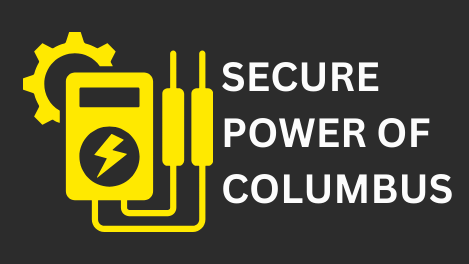
Whole House Generator in Shepard OH
A whole house generator is a backup power system designed to supply electricity to an entire home when the primary power source fails. Unlike smaller, portable generators that typically power only a few devices or appliances, whole house generators provide a seamless transition during power outages, ensuring that all electrical systems in your home continue to function normally. There are several types of whole house generators, including:
- Standby Generators: These are permanently installed outside your home and automatically turn on when there’s a power outage. They are fueled by natural gas or propane, making them a reliable and convenient choice for continuous power.
- Automatic Transfer Switch (ATS) Generators: This type includes an automatic transfer switch that detects power outages and switches the power source from the grid to the generator without any manual intervention.
- Diesel Generators: Diesel-powered whole house generators are known for their durability and are often used in areas with frequent or extended power outages.
How It Works
Whole house generators operate by continuously monitoring the power supply to your home. When the system detects a loss of power, it immediately activates the generator to provide electricity. The process involves a smooth transfer of power from the grid to the generator, which minimizes disruption to your household activities.
The generator is connected to your home’s electrical system through a transfer switch, which ensures that electricity flows from the generator to your home circuits only when needed. Once power is restored, the generator automatically shuts off and disconnects from the system, reverting control back to your primary power source.
How It Differs from Portable Generators
Whole house generators differ significantly from portable generators in several key ways.

We will get back to you as soon as possible.
Please try again later.
Firstly, whole house generators are designed to provide power to the entire home, whereas portable generators are typically used to power only essential appliances and devices.
Secondly, whole house generators are permanently installed and operate automatically, providing a seamless power supply during outages. Portable generators, on the other hand, require manual setup and operation, which can be inconvenient and less reliable during emergencies.
Lastly, whole house generators are usually fueled by natural gas or propane, which allows for longer and more consistent operation compared to portable generators, which often rely on gasoline and need frequent refueling.
Professional Installation Process
Installing a whole house generator involves several crucial steps to ensure it operates efficiently and safely.
The installation begins with a site assessment to determine the optimal location for the generator. Factors such as accessibility, ventilation, and proximity to the electrical panel are considered.
Next, a licensed electrician will handle the installation of the transfer switch, which connects the generator to your home’s electrical system. The generator itself is then placed and securely anchored in its designated location.
Finally, the system undergoes thorough testing to ensure everything is functioning correctly. This step includes checking the fuel supply, electrical connections, and automatic transfer process to guarantee the generator will operate seamlessly when needed.
Maintenance and Care
Regular maintenance is essential for keeping your whole house generator in optimal working condition. This includes routine checks and servicing to ensure that the system is ready to perform when needed.
Maintenance tasks involve inspecting and replacing air filters, checking and changing the oil, and ensuring the fuel supply is adequate. It’s also important to run the generator periodically to test its operation and address any issues before they become serious problems.
Many homeowners opt for professional maintenance services to ensure their generator is serviced according to the manufacturer’s recommendations. This helps in prolonging the life of the system and ensuring reliable performance during power outages.
Costs and Financing
The cost of a whole house generator in Shepard, OH varies depending on several factors, including the generator's size, type, and installation complexity. On average, the cost of purchasing and installing a whole house generator can range from a few thousand to tens of thousands of dollars.
Financing options are available to help manage the cost of purchasing and installing a whole house generator. Many companies offer financing plans, and some homeowners choose to use home equity loans or lines of credit to cover the expense.
It’s important to consider the long-term benefits of a whole house generator, including the peace of mind and protection it provides during power outages, when evaluating the overall cost.
What Are the Benefits
The benefits of having a whole house generator are numerous.
Firstly, it provides uninterrupted power to your entire home, ensuring that all essential appliances and systems remain operational during a power outage. This includes heating and cooling systems, refrigerators, medical equipment, and home security systems.
Secondly, whole house generators offer convenience and reliability. They automatically start when the power goes out, so there’s no need for manual setup or refueling, unlike portable generators.
Additionally, having a whole house generator can increase the value of your property. Potential buyers often view a home with a reliable backup power system as a desirable feature, making it a worthwhile investment.
What We Offer
At our company, we offer comprehensive services for whole house generators, including installation, maintenance, and repair. Our team of experienced professionals is dedicated to providing high-quality products and exceptional service to ensure your generator performs reliably when you need it most.
- Residential Generators
- Commercial Generators
- Portable Generators
- Electric Generators
- Propane Generators
- Solar Generators
- Generator Repairs
- Generator Maintenance
- Generator Parts
We work with you to select the right generator for your home and handle all aspects of the installation process. Our maintenance services are designed to keep your generator in top condition, and our repair services are available if any issues arise.
Common Misconceptions
There are several misconceptions about whole house generators that can lead to confusion.
One common misconception is that whole house generators are excessively noisy. Modern generators are designed with noise-reducing features, making them quieter than many people expect.
Another misconception is that whole house generators are difficult to maintain. In reality, routine maintenance is straightforward and can be easily managed with professional help.
Some people also believe that whole house generators are only necessary in areas with frequent power outages. However, even occasional outages can cause significant inconvenience, making a whole house generator a valuable addition to any home.
Troubleshooting Common Issues
While whole house generators are generally reliable, there are occasional issues that may arise. Common problems include:
- Generator Fails to Start: This can be caused by a variety of issues, including a dead battery, lack of fuel, or a malfunctioning transfer switch. Checking these components can often resolve the problem.
- Generator Runs but Doesn’t Produce Power: If the generator is running but not supplying power, there may be an issue with the electrical connections or the transfer switch.
- Unusual Noises: Unusual noises can indicate mechanical problems or maintenance needs. Regular inspections can help identify and address these issues before they become serious.
Frequently Asked Questions (FAQs)
- How long does a whole house generator run on a full tank of fuel? The run time depends on the generator’s size and fuel type. Most generators can run for several hours to several days on a full tank.
- Do whole house generators need to be manually started? No, whole house generators are designed to start automatically when a power outage is detected.
- How often should I have my generator serviced? It is recommended to have your generator serviced at least once a year to ensure it remains in good working condition.
- Can a whole house generator be installed in any location? The generator must be installed in a well-ventilated area, away from windows and doors, and compliant with local codes and regulations.
If you’re considering installing a whole house generator in Shepard, OH, or need more information about our services, don’t hesitate to reach out. Our team is here to answer your questions and help you choose the right solution for your needs. Contact us today to schedule a consultation and ensure your home is prepared for any power outage.
Let's Connect!
We offer top-notch whole house generator solutions. Our team is dedicated to ensuring your home stays powered during outages. Learn about How Whole House Generators Work in our Buyer's Guide. Don't let unexpected power outages disrupt your life. Contact us today for reliable backup power solutions and embrace a worry-free lifestyle.